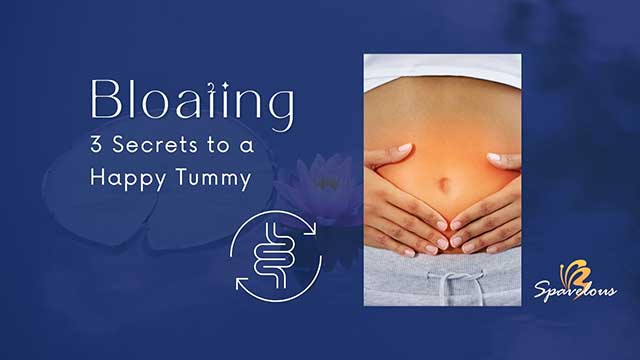Bloating Blues? Discover Your Path to Gut Happiness
Are you tired of feeling like a balloon after meals? You’re not alone. Bloating affects millions of people worldwide, but there’s hope for a more comfortable, energized you. In this comprehensive guide, we’ll explore the root causes of bloating, its connection to gut health, and reveal three powerful secrets to help you achieve digestive harmony.
Understanding Bloating: More Common Than You Think
Bloating is a widespread issue that affects nearly 18% of the global population at least once a week. Interestingly, women are twice as likely to experience this compared to men. In the United States alone, approximately one in seven Americans have dealt with bloating in the past week.
But what exactly is bloating? It’s characterized by a feeling of fullness, tightness, or swelling in the abdomen, often due to gas buildup in the digestive tract. While occasional this is normal, frequent or severe bloating can significantly impact your quality of life.
The Gut-Bloating Connection: Unveiling the Hidden Culprit
The Microbiome: Your Gut’s Ecosystem
At the heart of many digestive issues, including bloating, lies an imbalance in the gut microbiome. This complex ecosystem of trillions of microorganisms plays a crucial role in digestion, immune function, and overall health. When this delicate balance is disrupted, a condition known as dysbiosis occurs, often leading to the situation and other digestive complaints.
Factors Affecting Your Gut Microbiome
Several factors can influence the composition and diversity of your gut microbiome:
- Age
- Health status
- Diet
- Environment
Research has shown that decreased microbial diversity is linked to chronic conditions such as obesity and Type 2 diabetes. Some key factors contributing to the loss of microbial diversity include:
- Overuse of antibiotics
- Elective C-sections
- Consumption of processed foods
- Environmental factors (EMFs, air pollution)
The Mitochondrial Connection: Powering Your Gut Health

Energy Production and Digestive Wellness
Proper energy production at the cellular level is essential for maintaining a healthy gastrointestinal tract. Unfortunately, many people have dysfunctional mitochondria, making it challenging to create cellular energy efficiently enough to ensure a healthy gut.
The Two Types of Gut Bacteria
Your gut primarily contains two types of gram-negative bacteria:
- Beneficial bacteria (obligate anaerobes)
- Pathogenic bacteria (facultative anaerobes)
Maintaining a low-oxygen environment in the gut is crucial for supporting beneficial bacteria and suppressing pathogenic growth.
Your Action Plan: 3 Secrets to Improve Gut Health and Reduce Bloating

Secret 1: Optimize Mitochondrial Function
Enhancing mitochondrial health is key to improving gut function. Here’s how you can power up your cellular engines:
- Reduce intake of linoleic acid (LA): Cut back on processed foods and vegetable oils high in LA, like soybean and corn oil. Instead, opt for healthier fats like olive oil, avocados, and nuts.
- Address estrogen dominance: Balance your hormones through diet, exercise, and stress management. Consider eating more cruciferous vegetables and fiber-rich foods.
- Limit exposure to EMFs: Reduce your exposure to electromagnetic fields by turning off Wi-Fi at night and keeping electronic devices away from your sleeping area.
- Consume healthy carbs: Include ripe fruits, raw honey, and maple syrup in moderation. These provide easily digestible energy for your mitochondria.
- Reduce stress: Practice relaxation techniques like deep breathing, meditation, or yoga. Chronic stress can negatively impact mitochondrial function.
- Supplement with niacinamide: This form of vitamin B3 supports mitochondrial health. Consult with a healthcare professional before starting any new supplement.
Secret 2: Make Dietary and Lifestyle Changes
Transform your diet to support a healthy gut microbiome:
- Incorporate fermented foods: Add probiotic-rich foods like yogurt, kefir, sauerkraut, or kimchi to your diet. Start with small amounts and gradually increase.
- Gradually introduce fiber and starches: Slowly increase your intake of fiber-rich foods and resistant starches. This includes vegetables, fruits, whole grains, and legumes. A gradual approach helps prevent digestive discomfort.
- Consume organic fruit juices: Enjoy fresh, organic fruit juices in moderation. They provide easily digestible nutrients and can support gut health when consumed as part of a balanced diet.
- Include prebiotics, probiotics, and postbiotics:
- Prebiotics: Found in foods like garlic, onions, and bananas, these feed beneficial gut bacteria.
- Probiotics: Besides fermented foods, consider a high-quality probiotic supplement.
- Postbiotics: These are beneficial compounds produced by probiotics. You can get them from fermented foods or specific supplements.
Secret 3: Embrace Natural Remedies
Harness the power of nature to soothe your digestive system:
- Chew on fennel seeds: After meals, chew on a teaspoon of fennel seeds. They can help reduce gas and bloating.
- Use digestion-friendly spices: Incorporate these spices into your cooking:
- Ginger: Known for its anti-inflammatory properties, it can help reduce bloating and nausea.
- Cumin: This spice can stimulate the secretion of pancreatic enzymes, aiding digestion.
- Black pepper: It can enhance the absorption of nutrients and support digestive health.
- Cinnamon: This spice may help balance blood sugar levels, indirectly supporting gut health.
- Try herbal teas: Peppermint, chamomile, and ginger teas can help soothe the digestive system and reduce bloating.
By implementing these three secrets – optimizing mitochondrial function, making smart dietary changes, and using natural remedies – you’re taking powerful steps towards improved gut health and reduced this condition. Remember, everyone’s body is unique, so pay attention to how your body responds and adjust accordingly.
Conclusion: Your Journey to a Happier, Healthier Gut Starts Now
By understanding the intricate connections between your gut microbiome, mitochondrial health, and bloating, you’re now equipped with the knowledge to take control of your digestive wellness. Remember, small, consistent changes can lead to significant improvements over time.
Start by incorporating one new habit this week, whether it’s adding a fermented food to your diet or practicing a daily stress-reduction technique. Your future, bloat-free self will thank you for taking these steps towards optimal gut health and overall well-being.
Are you ready to embark on your journey to banish bloating and embrace a life of digestive comfort? The power to transform your gut health is in your hands!
FAQs: Your Burning Questions Answered
Q1: How does bloating relate to gut microbiome health?
A1: Bloating often indicates an imbalance in the gut microbiome. A disrupted composition of gut microorganisms can lead to inflammation, reduced diversity, and various digestive issues, including bloating.
Q2: Can improving mitochondrial function help reduce bloating?
A2: Yes, optimizing mitochondrial health is crucial for proper gut function. Healthy mitochondria ensure efficient energy production, which is necessary for maintaining an oxygen-free environment in the large intestine where beneficial gut bacteria thrive.
Q3: What dietary changes can help improve gut health and reduce bloating?
A3: Incorporating fermented foods, gradually introducing fiber and starches, consuming organic fruit juices, and including prebiotics, probiotics, and postbiotics can significantly improve gut health and potentially reduce bloating.
Q4: How quickly can I expect to see results in reducing my bloating?
A4: While everyone’s body is unique, many people report noticeable improvements in bloating within 2-4 weeks of implementing dietary and lifestyle changes. Consistency is key to long-term success.
Q5: Are there any foods I should avoid to reduce bloating?
A5: Common bloat-inducing foods include processed items, artificial sweeteners, and gas-producing vegetables like broccoli and cabbage. However, individual triggers can vary, so keeping a food diary can help identify your personal sensitivities.
Q6: Can stress really impact my digestive health and bloating?
A6: Absolutely! Stress can significantly affect gut function and exacerbate bloating. Incorporating stress-reduction techniques like meditation or deep breathing can have a profound impact on your digestive well-being.